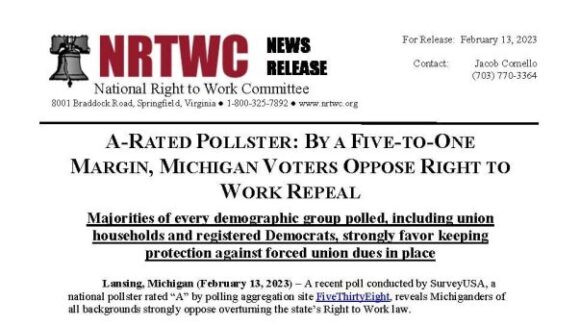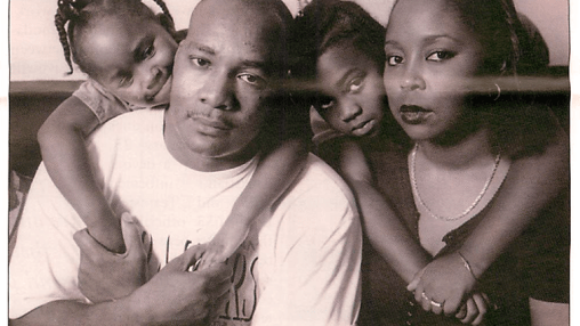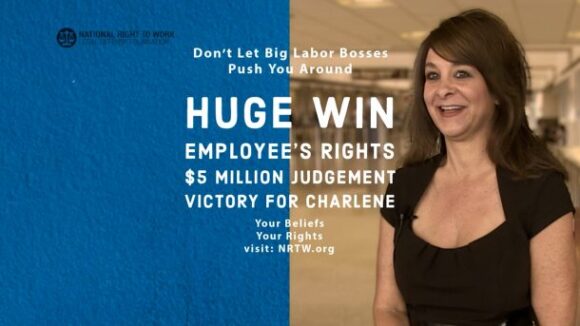For well over three decades, union organizing drives have more and more frequently adopted the “top-down,” or “cram-down,” unionism approach.
Through actual or threatened litigation, accusations of regulatory violations, negative PR campaigns, and other types of pressure, union bosses browbeat the company into helping organize the employees. It is then up to the captive company to convey the message to independent-minded employees that all resistance to monopolistic unionism will be futile.
In an influential article for a Big Labor trade journal more than 20 years ago, union organizer Joe Crump (who passed away in 2006) summed up the cram-down strategy:
“Employees are complex and unpredictable. Employers are simple and predictable. Organize employers, not employees.”
Incredibly, though cram-down unionism has been standard Big Labor practice for decades, it still seems like a novel concept to many mainstream media reporters who cover workplace issues. G. Chambers Williams III of the Nashville Tennesseean is the latest example of a journalist who appears unfamiliar with cram-down unionism.
In last Friday’s Tennesseean (see the link below), Williams covered a charge filed with the National Labor Relations Board (NLRB) earlier that week by four employees at the Volkswagen plant in Chattanooga, Tenn. The employees, who are represented by a National Right to Work Legal Defense Foundation attorney, argue that a senior member of Volkswagen’s German management team infringed on their legal right to seek to remain union-free by suggesting that “the plant would not get a new vehicle to build — along with hundreds of new jobs — unless the workers agreed to [monopolistic] union representation.”
To be precise, the head of VW’s global works council, Bernd Osterloh, who is directly involved in the firm’s production decisions, has publicly and repeatedly said a new, seven-passenger crossover could be assembled in Chattanooga, but only if the plant first establishes a “works council.” And it is widely believed that under U.S. labor law a works council can be set up only after a union is recognized as production employees’ monopoly-bargaining agent on matters concerning their pay, benefits, and work rules.
Osterloh’s admonition has been exploited again and again by organizers for the United Auto Workers (UAW) union, who have for many months been conducting a campaign to procure monopoly-bargaining privileges over VW’s employees in Chattanooga. Citing Osterloh, UAW organizers effectively tell workers, agree to be corralled into our union, or you will lose the many opportunities for pay raises and promotions that would come with a plant expansion.
Williams’ account quoted Right to Work President Mark Mix regarding why the only logical choice for the NLRB is to take up the VW employees’ charges:
If VW management were “discouraging workers from joining the UAW with threats, there’s little question that an NLRB prosecution would have already begun at the UAW’s behest . . . .”
But unfortunately, Williams led off the article by suggesting that few if any companies have previously been accused of doing what VW’s German management is accused of:
The campaign by the United Auto Workers to organize the Volkswagen plant in Chattanooga has taken an unusual twist: Some of the employees are complaining that the company is illegally trying to coerce them into joining the union.
In reality, union organizers across the country have long recognized that most of the workers they are targeting have no interest in being pushed under union monopoly control, and have consequently sought to intimidate employers into doing their dirty work for them. One possible benefit of the NLRB case brought on behalf of Chattanooga employees by the Right to Work Foundation is that it will educate journalists and the general public about just how common cram-down unionism is.
Chattanooga workers say Volkswagen trying to coerce them into …


